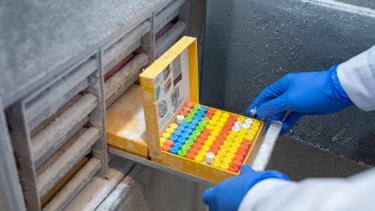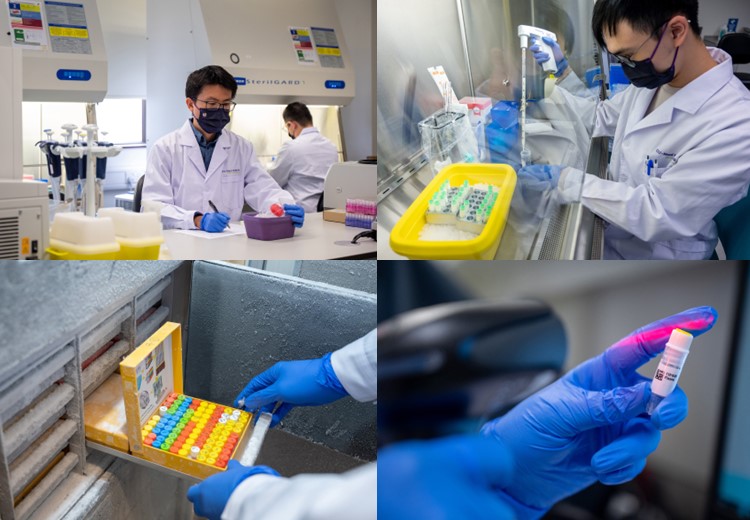Leading biomedicine development with internationally accredited biobank

The biobank is a driving force for developing Hong Kong to become an important biomedical research hub in the region.
CU Medicine has successfully established an internationally accredited biobank. The CU-Med Biobank will be a driving force for the development of biomedicine in the Guangdong-Hong Kong-Macao Greater Bay Area, and leading Hong Kong to become an important biomedical research hub in the region. The biobank has received international accreditation from A2LA, making it one of the two biobanks that fulfill the required international standards in the Asia-Pacific region.
Acceleration of research and development of new drugs
To develop new drugs or pioneer new diagnostic technologies, one prerequisite is a biobank, which is an essential facility for the systematic storage of clinical data and bio-specimens. It is not just a repository for sample storage, but also includes a set of strict management systems for handling diverse biological samples and precise multi-omics analysis.
Prof. Francis Chan, Dean of Medicine and Head of the Steering Committee of CU-Med Biobank at CU Medicine, said, ‘The standard of biobanking determines not only the quality of academic research but also the potential capability for new drug development. The threshold for becoming an internationally accredited biobank is very high; our achievement can help attract collaborations from top global scientific research teams and multinational pharmaceutical companies. This international accreditation will provide CU Medicine with valuable credibility that will allow us to work with the Hospital Authority and transform Hong Kong into the hub for research and new drug development in the Guangdong-Hong Kong-Macao Greater Bay Area.’

The CU-Med Biobank strictly adheres to regulations in four major areas: sample acquisition, processing, storage, and distribution.
Prof. Ronald Ma, Co-Head of the Executive Committee of CU-Med Biobank, and Professor at the Department of Medicine and Therapeutics at CU Medicine, said, ‘Genomic research has rapidly developed over the past two decades due to the emerging trend of precision medicine and personalised medicine. A biobank is therefore considered a precious asset for humans because it not only stores a vast amount of genetic data, but also biospecimens with the potential to generate a variety of other biomarker information, and therefore has great potential to advance medical research.’
Great potential in advancing genomic research
In the past few years, various research teams at CU Medicine have started using the service of CU-Med Biobank for large-scale genomic research, including breast cancer studies. One research team has built a Breast Cancer Biobank using the CU-Med BioBank, which will store tens of thousands of biological samples, and histology, genetic and multi-omics data.
The CU Medicine diabetes team, which has extensive experience in genomic research, has successfully identified multiple genetic markers and other biological markers related to diabetes and its complications over the past decade by establishing the Hong Kong Diabetes Biobank. The findings will help identify patients at risk of developing diabetes, as well as those with diabetes who are at high risk of kidney disease or cardiovascular disease.
The Microbiota I-Centre of CU Medicine has established the world’s largest 100k mother-infant cohort since 2019, which positions Hong Kong as a leading hub in the new microbiota industry in the Asia-Pacific region.
Read more:
(July 2023)